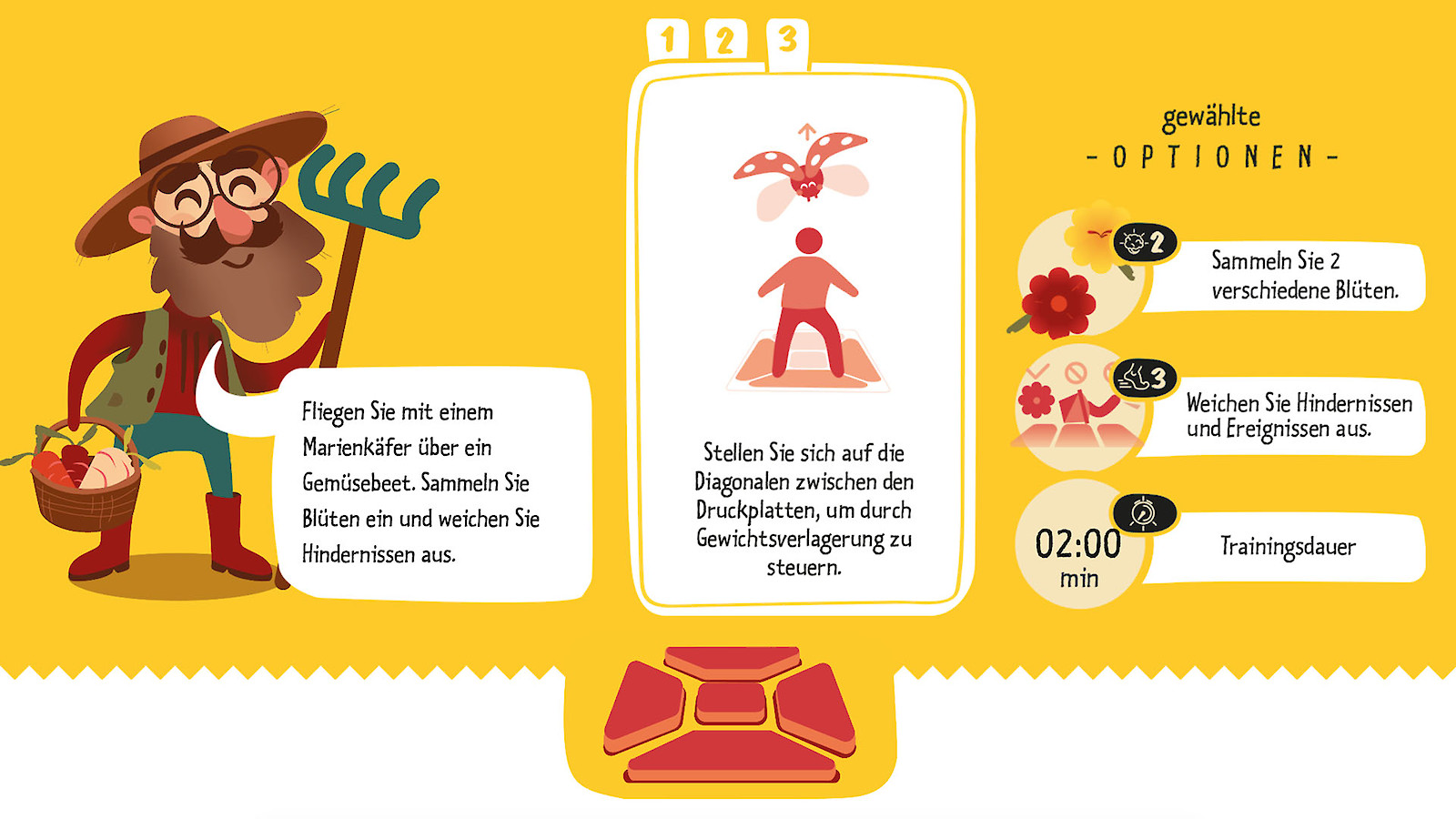A Playful Motor-Cognitive Training Intervention in Multiple Sclerosis Patients
Evidence-based Design, Evaluation and Implementation of a Training to Improve Body Functions in MS Patients
The prevalence of multiple sclerosis (MS), a chronic inflammatory disease of the central nervous system, is estimated to 1:8000 in Europe and is the most common cause of neurological disability in young adults. MS manifests in a wide range of symptoms including muscle weakness, extreme fatigue and cognitive dysfunction. These symptoms can affect quality of life and health care costs. Patients with MS often are physically inactive and this can initiate deconditioning. Huge need exists to counteract the body impairments. Physical exercise can counteract the symptoms of MS. Studies showed that an individual tailoring (training principles) is important to evoke positive effects. Thus, exergame-based training interventions seem to be a promising training.
Exergames are a playful motor-cognitive training that is close to daily life activities. Previous studies indicate that exergames have positive effects in MS patients. However, the used exergames were commercially games which were not specifically designed for MS-therapy. A need persists for both, for specific user-centered development of exergames as well as for studies investigating the usability, feasibility and effectiveness. To fill this gap and to contribute to the improvement of body functions in MS patients in an effective and motivating way, the project partners will extend the motor-cognitive training setting with the Dividat Senso platform by user-centered exergames.


